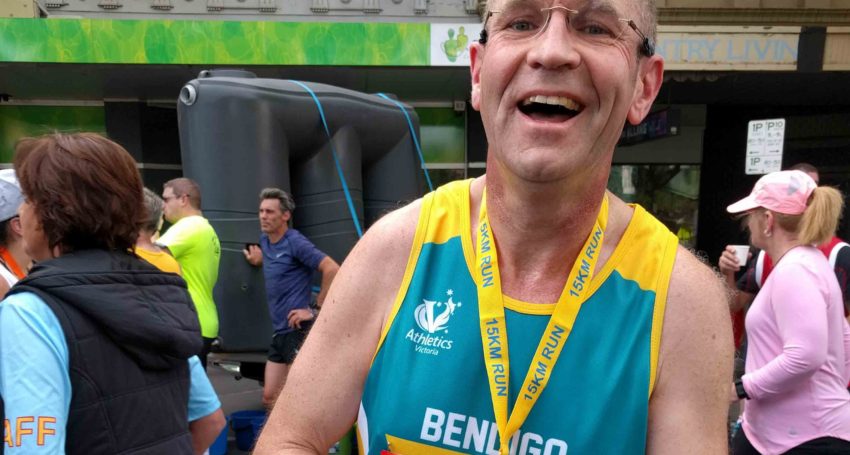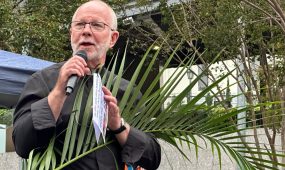Learning to recalibrate
Reflections
“My doctor recently advised me to reduce or even stop my running as I have dodgy and painful arthritic knees…So these last few months have been tough for me, as I work out what strategies I will embrace to manage stress and the unique demands of a clergyperson’s role…Too often we shoulder our burdens alone. Finding the right people to talk to is vital and being open about our very human struggles is also greatly important,” says Bishop John Roundhill, as part of a special anglican focus series on clergy mental health

Story Timeline
Clergy mental health
- Clergy are called to care for their people, but who cares when the carer needs care?
- Are you an altruistic perfectionist?
- Myth-busting clergy mental health
- Reaching for the rescue ring
- Advent and clergy wellbeing
- Flourish: one way we care for our people
- From ‘Lost Boy of Sudan’ to Bishop to counselling undergrad
The work we as clergy do can be tough. Very often the post-Sunday-service joke, ‘What do you do on all the other days of the week?’ rings hollow. Clergy work six days a week and we are notorious for not taking our day off.
When I lived in Hong Kong from 2002 to 2006 there was the understanding that as a Cathedral chaplain I would regularly arrive early to take an early morning Eucharist at 8 o’clock which was followed by breakfast in a hotel restaurant. I would often have a working lunch at one of the hotels or private clubs and then I would work through until the office staff left at five o’clock in the afternoon. But then sometimes there would be an evening meeting and I might not head home until nine o’clock.
Advertisement
How could I ever complain when my day had included two or three exquisite meals and I had been working with some wonderful people? How could I be depressed in such an exciting city? I am fortunate that the people I worked with noticed things before I did myself. I am not sure what they noticed, but apparently I have an expressive face. One priest colleague suggested I start running again, and we subsequently both ran the Macau Marathon a year later. A member of the congregation recommended stretching and relaxing my brain with cryptic crosswords. I found I had more time in my day for my work, even when I fitted in running and crosswords.
I have tried to keep both these activities going over the years. It is well known that physical exercise has a positive impact on our mental wellbeing. But less discussed is just how much it has a positive impact on our spiritual wellbeing. I found running gave me a space where I could pray and meditate. When I have confessed this to other runners, even ones with no formal church relationship, I am surprised by how many others agree and comment that they resonate with this observation.
Advertisement
But running is not for everyone. In the last months of COVID-19 restrictions, I have had to consider this myself. My doctor recently advised me to reduce or even stop my running as I have dodgy and painful arthritic knees. To keep my own knees a while longer, I need to limit high-impact activities. So these last few months have been tough for me, as I work out what strategies I will embrace to manage stress and the unique demands of a clergyperson’s role. I have needed to reconsider where am I going to find the space and time for prayer and meditation now I cannot run. The answer will involve a balance of swimming, walking and cycling.
This recalibration is something we all have to do at one point or another; however, it is not something we have to do alone. Too often we shoulder our burdens alone. At one point when I was feeling quite flat and worn out from ministry, I went to see my trusted GP to seek his advice. While I was half-expecting him to refer me to a psychologist or counsellor, which I was very open to doing, he didn’t. Instead he suggested that I run more and this did the trick.
Finding the right people to talk to is vital and being open about our very human struggles is greatly important, as I have sought to do here.
The older I get the more ready I am to have such conversations and the less worried I have been about seeking help from GPs, counsellors and physiotherapists.





